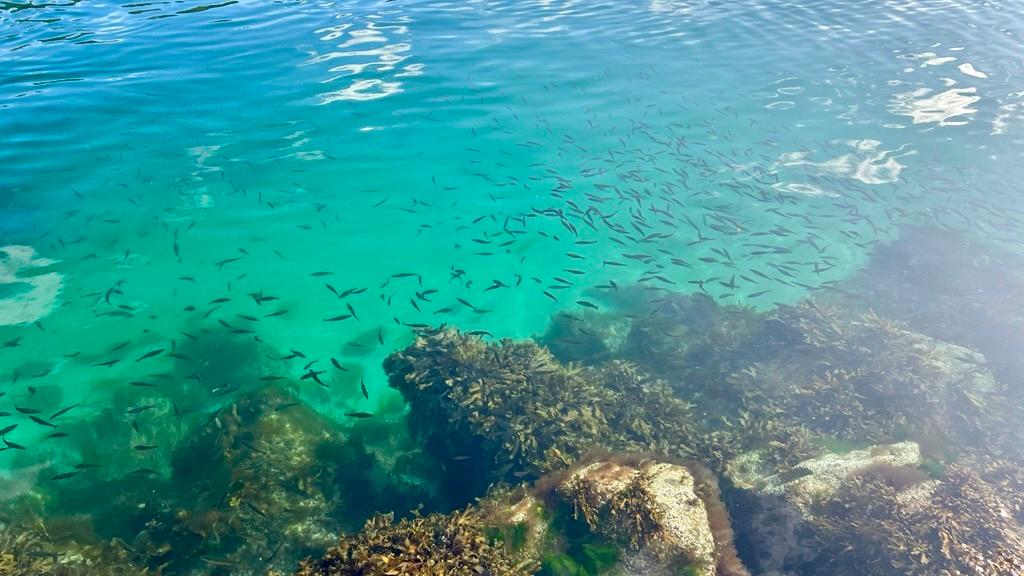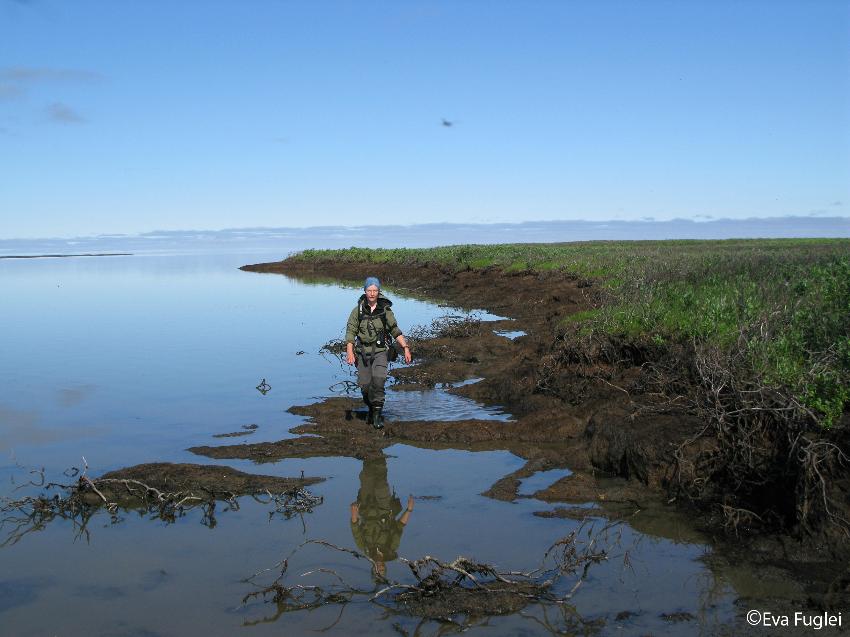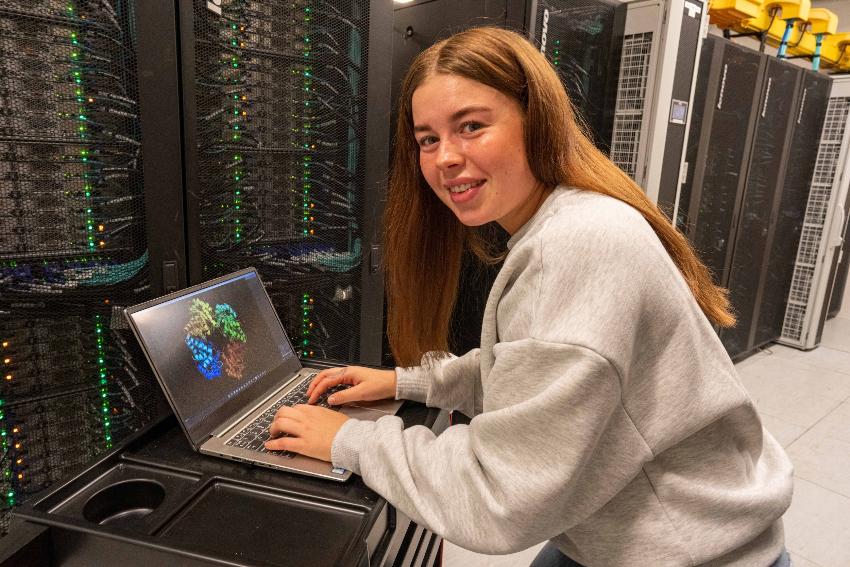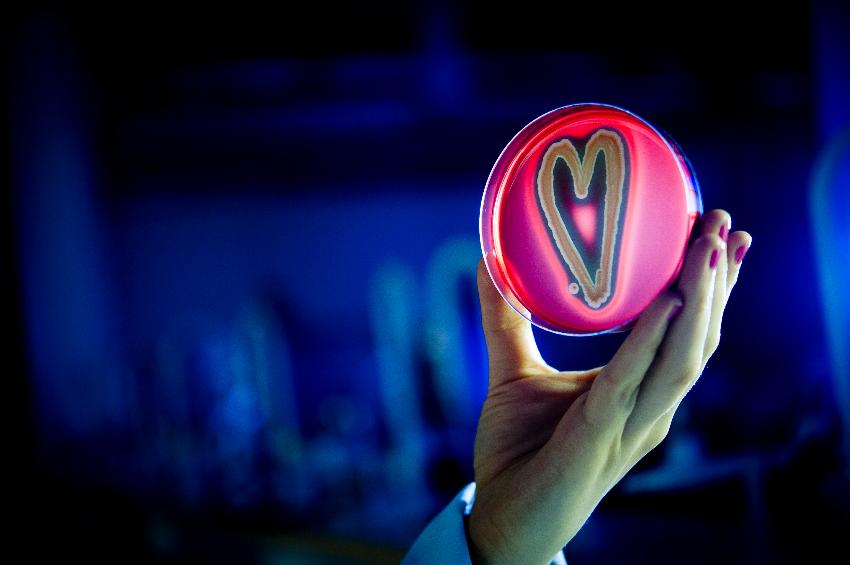Dive into the future of ocean exploration and innovation. This program combines biotechnology, chemistry, and life sciences to equip you with cutting-edge knowledge and hands-on research experience in areas like marine drug discovery, sustainable seafood, carbon capture, and green chemical processes.
Collaborate with leading UiT researchers, master modern analytical and molecular techniques, and connect with a global network of academic and industry partners. Located in Tromsø’s thriving innovation hub, you’ll be ready to shape sustainable solutions in research, industry, or entrepreneurship.
The student is eligible according to UiT - The Arctic University of Norway's general admission rules:
- General admission requirements - Master
- Admission requires a Bachelor's degree (180 ECTS) in biotechnology, marine biotechnology, molecular biology, biochemistry, chemistry or a related discipline OR an equivalent degree following a programme of study of minimum 3 years (More information on bachleor's degree requiremetns)
- A minimum of 80 ECTS must be within relevant subjects such as chemistry, molecular biology, microbiology, or biotechnology.
- Applicants must have a minimum grade average comparable to a Norwegian “C” (3.0) in the ECTS scale, see the UiT webpage for international admissions for more information on how the point average is calculated.
- International students from non-Nordic countries (except students with English as their mother tongue), must meet the Department of Chemistry's English proficiency with a recommended minimum score of 6.5 on each part of the IELTS test, minimum scores of 22, 22, 22 and 25 (reading, listening, speaking and writing, respectively) on the TOEFL test, C1 Advanced or C2 Proficiency level on Cambridge ESOL Examinations, or minimum C1 level on The European language certificate (telc)
Upon admission, applicants are ranked by average grade on subjects included in the in-depth specialisation from the bachelor degree.
Admission capacity
15 places
Applicants from Norway or Nordic countries
Her finner du all informasjon knyttet til søking og opptak.
Applicants within EU/EEA/Switzerland (except the Nordic countries)
You will find more information about admission for EU/EAA applicants here
Applicants outside EU/EEA/Switzerland and the Nordic countries
- Non-EU students must be prepared to pay tuition fees.
- You will find more information about admission for Non-EU/EEA applicants here
- Nordic applicants: 6028
- EU/EEA and Swiss applicants: 7108
- Non-EU/EEA applicants: 2085
Program description
Gain advanced expertise in marine biotechnology, biomolecular chemistry, and analytical chemistry with a focus on sustainability and innovation. Key topics include marine bioprospecting, bioactive compound analysis, protein structure, enzymology, synthetic chemistry, and computational biology—empowering you to harness marine resources for valuable products and processes.
Hands-on training is at the core of this program. You’ll master laboratory techniques such as spectroscopy, chromatography, molecular modeling, and bioinformatics. Through real-world research projects, you’ll isolate and analyze bioactive compounds, characterize proteins and enzymes, and apply advanced methods for sustainable marine processing and chemical production.
The program also fosters interdisciplinary skills, preparing you to tackle scientific, environmental, and ethical challenges, contribute to R&D projects, and communicate effectively with diverse audiences. With a curriculum designed for innovation, you’ll be ready to lead in research, industry, and the global marine bioeconomy—driving sustainable solutions for the future.
Learning outcomes
On completion of the program, a successful candidate is expected to have achieved the following learning outcomes:
Knowledge
The candidate…
- has advanced knowledge of molecular biology, marine biotechnology and biomolecular chemistry
- understands how marine resources can be utilised for biotechnological applications and sustainable value creation
- is familiar with techniques used in bioprospecting, industrial biotechnology, protein structure analysis and chemical synthesis
- understands the principles of bioinformatics, metagenomics, and microbial genomics relevant to marine and environmental biotechnology
- can apply knowledge in new areas within the field
- can critically analyse and reflect on scientific theory, methodology, and ethics related to biological resource use and development
Skills
The candidate…
- can apply a range of laboratory and analytical methods, including spectroscopic techniques, chromatographic methods, and computational tools
- can isolate, characterise and analyse bioactive compounds and biomolecules from marine sources
- can analyse and evaluate scientific data, theories and methodologies within the field
- can plan and carry out independent scientific work under supervision, and handle relevant data, literature and sources
- can communicate scientific results clearly, both orally and in writings
General competence
The candidate…
- is able to participate in interdisciplinary research and development projects
- can critically analyse and discuss scientific, environmental and ethical challenges related to biotechnology and innovation
- is able to communicate subject-related issues, analyses, and conclusions within the discipline, both with specialists and with non-specialists
- can contribute to knowledge-based innovation in the marine bioeconomy or chemical industry
Job prospectives
Graduates of the Marine Biotechnology and Biological Chemistry program at UiT are prepared for diverse careers in research, industry, and the public sector, both in Norway and internationally. Career paths include roles as marine biotechnologists, research scientists, product developers, engineers, laboratory specialists, and entrepreneurs in areas like sustainable seafood, pharmaceutical discovery, environmental biotechnology, and marine value creation.
Many alumni work in leading biotech companies, research institutes, and public agencies focused on marine resources, molecular life sciences, and innovation. With strong practical skills and interdisciplinary training, graduates are also well-suited for management roles and startup ventures, particularly in Tromsø’s thriving blue and green biotech sector.
The program also opens doors to further academic pursuits, including PhD studies in biotechnology, molecular biology, synthetic biology, and biochemistry. Alumni have secured positions in hospital labs, universities, and companies such as Mowi, Nofima, Pharmaq, Akvaplan-Niva, and ArcticZymes—highlighting the program’s industry relevance and strong network.
Degree Name
Master of Science in Marine Biotechnology and Biological Chemistry.Access to further studies
Given satisfactory grades at bachelor and master's level, the MSc degree will qualify students for admission to PhD studies. With a master’s degree in Marine biotechnology and Biological Chemistry you will qualify to apply for vacant PhD-positions if you finish your masters with an average grade of C or better in the Norwegian grading system.
Related professions
Study plan
Language of instruction
The language of instruction and examination is English, and all syllabus material is in English. The Master´s thesis must be written in English.
Teaching and assessment
The study programme uses a variety of teaching methods, depending on the courses/subjects and may include: lectures, seminars, laboratory work, working in teams, fieldwork and industrial visits - or preferably a combination. Assessment methods vary and may include oral or written exams, evaluation of laboratory or project reports, or a combination of these. Detailed course descriptions are available online.
The master’s thesis (60 ECTS) is an independent scientific dissertation carried out over three semesters under the supervision of academic staff. The work typically takes place within a research group affiliated with the Department of Chemistry or the Norwegian College of Fishery Science. Students are encouraged to get in touch with potential supervisors early in the programme.
To achieve the learning outcomes of the programme, students are expected to work on average at least 40 hours per week throughout the year on project and courses, including lectures, lab and seminars.
The Master´s program is structured such that the student can spend periods of their study abroad, preferably in the third semester. Student exchange can be formal courses, or visits to other labs and institutions to learn new techniques. Formal exchange programs with international Universities exist, (see the study program's web pages for more information). However, visits abroad are generally arranged individually, depending on what is relevant for the Master´s project, and on the collaborations of the supervisor. Courses must be approved in advance.
Destinations for studies abroad
Renate Lie Larsen
Seniorkonsulent, studieadministrasjon, Institutt for kjemi,
Bjørn Olav Brandsdal
Professor, Teoretisk og beregningsbasert kjemi, Hylleraas-senteretElias Haugseth
Førstekonsulent, StudieadministrasjonOther studies you may like
Vil du vite hvordan det er å være student ved UiT? Følg @uitstudent på Instagram eller TikTok, hvor studenter deler fra livet på universitetet. Her får du praktiske tips om studier og studentliv, nyttig informasjon om campus og muligheten til å stille spørsmål om alt du lurer på.
For mer informasjon om studietilbud, forskning og muligheter direkte fra UiT, kan du følge @uitnorgesarktiske på Instagram eller TikTok. Her finner du offisielle oppdateringer og innsikt i hva universitetet har å tilby.






